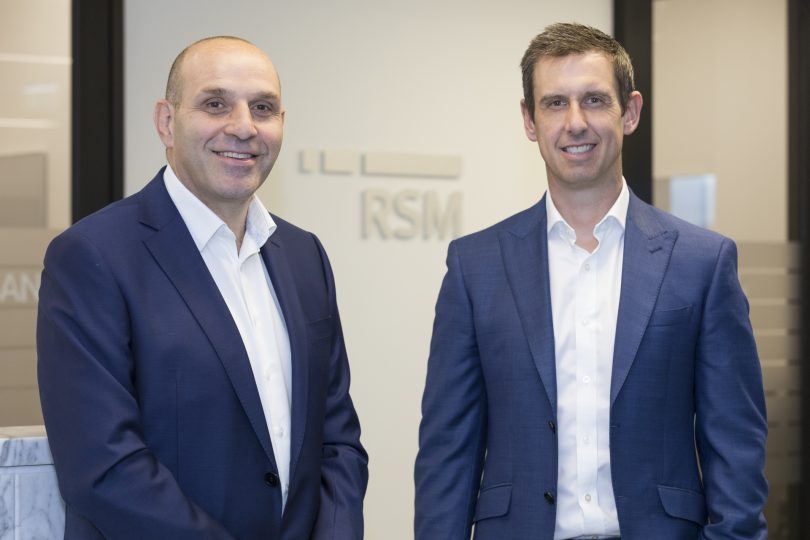
RSM director Frank Lo Pilato and RSM partner Jon Colbran are preparing for an influx of business insolvencies as Government subsidies begin to taper. Photo: Region Media.
Experts have been sounding the siren for months, warning about a sharp increase in the number of business insolvencies and bankruptcies when Federal Government support and subsidies end.
JobKeeper has been a lifeline for many businesses but RSM partner Jon Colbran says the decrease in rates on 28 September will take businesses one step closer towards the precipice.
Mr Colbran expects insolvencies to more than double as government support like the $1500/fortnight JobKeeper wage subsidy is steadily decreased through to early 2021, potentially amounting to tens of thousands of businesses going under.
Business wrap with Cam Sullings
What should small businesses be doing now to prepare for when government stimulus measures end? Our experts Jonathon Colbran from RSM Australia and Archie Tsirimokos of Meyer Vandenberg Lawyers share their advice for adapting to the new post-COVID normal. Watch this week's Business Wrap for tips on preparing your business as government subsidies begin to taper off.
Posted by The RiotACT on Monday, September 28, 2020
“The economic cliff that we are concerned about is ultimately a culmination of a number of different stimulus measures coming to an end,” he said.
“It is just a question of when and how big the cliff is.
“I expect a significant increase in insolvencies that would probably look like tens of thousands of businesses becoming insolvent and appointing liquidators or administrators.”
Ten per cent of businesses surveyed by the Australian Bureau of Statistics in July 2020 indicated that they would cease operating when the stimulus stops. There are around 2.7 million registered companies in Australia.
“We are in a weird economy right now where insolvency practitioners are suffering financially because the stimulus measures are working so well. Not only have they stopped the COVID-19 influx but they have also reduced the normal number of companies winding up that are expected every year by about 50 per cent.
“Right now all those normal insolvencies are not happening, so that will pick up and be the spike that we see, as well as any COVID-19 spike as well. I expect we will get a flood because they have been holding back and reducing the number of insolvencies for at least six months.”
Construction, hospitality, tourism and bricks and mortar retail are expected to be hit the hardest as JobKeeper payments start to taper and uncertainty remains around COVID-19 restrictions. But there are still steps businesses are able to take to prepare themselves when the taps turn off.
“You can plan for the inevitable,” Mr Colbran said. “Businesses need to prepare for a more difficult trading environment and the return to the new normal which looks like all of those things coming back on stream and all of those creditors wanting to be paid.
“These stimulus measures are going to end and your landlord will want you to pay full rent, the Australian Tax Office will want you to enter into an arrangement to pay your tax debt back, your banks are going to want you to start repaying your loans, and your creditors are going to be able to take you to court and bankrupt you if you cannot pay your debt.
“Our advice is that business owners and directors need to use this breathing space – and that is what the stimulus is – to prepare for the post-COVID-19 normal and prepare a business recovery plan.
“They should be speaking with their trusted advisor now, their accountants, their business and legal advisor, possibly even a restructuring expert to plan for certain eventualities.”
















